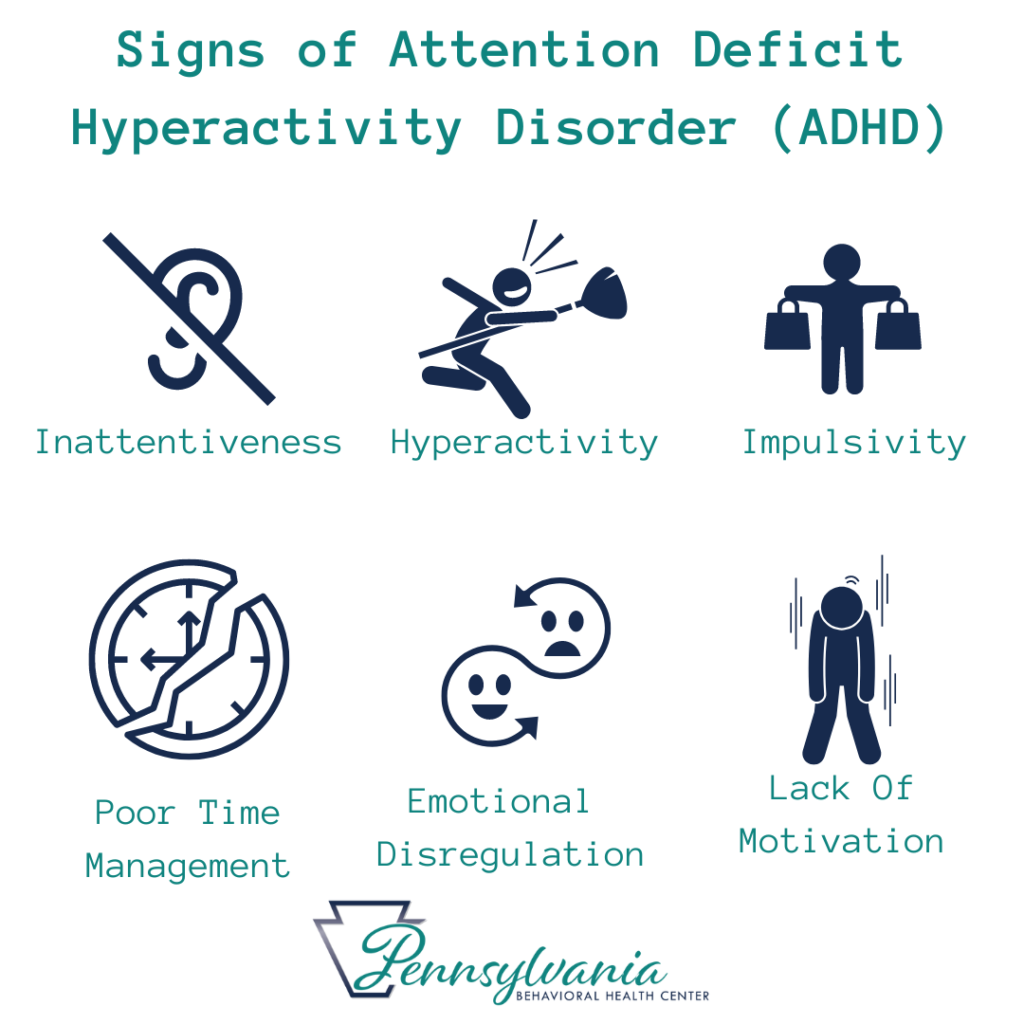ADHD Doctor Support to Help Navigate Symptoms
ADHD Doctor Support to Help Navigate Symptoms
Blog Article
Discovering Efficient ADHD Treatment Alternatives for All Ages
The intricacies of Attention Deficit Hyperactivity Disorder (ADHD) present unique challenges across various age teams, requiring a comprehensive exploration of efficient treatment choices. A combination of behavior therapies, pharmacological treatments, and lifestyle adjustments has actually shown promise in attending to the varied needs of people with ADHD. Nonetheless, the efficacy of these techniques can differ substantially based upon personal situations, elevating crucial concerns concerning customized strategies. As we take a look at the range of therapy methods readily available, it comes to be necessary to think about not only their instant effects yet likewise their lasting effects for people and family members.
Comprehending ADHD and Its Effect
Attention-Deficit/Hyperactivity Condition (ADHD) is a neurodevelopmental condition identified by consistent patterns of inattention, hyperactivity, and impulsivity that can dramatically influence numerous elements of a person's life. It commonly materializes in childhood, although signs and symptoms can continue into adulthood. The core signs and symptoms of ADHD can interfere with educational efficiency, impede social interactions, and complicate occupational undertakings.
Individuals with ADHD usually fight with maintaining emphasis on tasks, arranging activities, and following up on guidelines, which can cause academic underachievement (Depression Treatment). In social contexts, impulsivity may cause difficulties in creating and sustaining partnerships, as individuals might interrupt discussions or make rash decisions without taking into consideration consequences
The irregularity in signs and symptom discussion suggests that ADHD can impact individuals differently, requiring a tailored technique to management. Comprehensive awareness of ADHD's nature and ramifications lays the foundation for checking out appropriate treatment alternatives customized to each individual's needs.
Behavioral Therapies for ADHD
Numerous behavior modifications have been established to effectively address the obstacles linked with ADHD, concentrating on modifying details behaviors and cultivating crucial abilities. Among one of the most acknowledged methods are cognitive-behavioral therapy (CBT), parent training, and social abilities training.
CBT aids people determine and alter adverse idea patterns and behaviors, promoting a much more positive outlook and boosted self-regulation. This therapy often consists of practical techniques for taking care of impulsivity and enhancing organization. Parent training programs empower caretakers by outfitting them with methods to reinforce favorable behaviors and set consistent limits, which can be especially valuable for children with ADHD.
Social abilities training is another crucial component, mentor people with ADHD exactly how to connect effectively with peers - Depression Treatment. This strategy frequently includes role-playing and feedback to improve interaction, collaboration, and dispute resolution abilities
Incorporating these behavior therapies into a detailed therapy plan can dramatically boost working and lifestyle for people with ADHD. Ultimately, the efficiency of these treatments relies on tailored methods that consider the special demands of each person, thus promoting strength and flexibility in every day life.
Drug Options Available
For many individuals with ADHD, medicine can play a considerable duty in managing symptoms and enhancing overall performance. The 2 key categories of medications prescribed for ADHD are stimulants and non-stimulants.
Stimulants, such as methylphenidate and amphetamine-based medications, are the most typically utilized treatments. These drugs work by enhancing the levels of neurotransmitters, particularly dopamine and norepinephrine, in the brain, which helps improve attention and reduce impulsivity and hyperactivity. They frequently yield rapid outcomes, making them a recommended alternative for lots of westlake psychiatry individuals.

It is important for doctor to perform a comprehensive assessment to identify the most suitable medication based on individual needs, medical background, and possible adverse effects. Normal follow-up and surveillance are additionally critical to make certain the effectiveness of the picked therapy and to make any type of needed modifications.
Lifestyle Changes to Consider
Taking care of ADHD properly expands past medicine, as way of life changes sites can dramatically improve general wellness and symptom control. Incorporating organized routines is vital; regular routines help people with ADHD handle their time efficiently and reduce sensations of overwhelm.
Regular exercise is an additional essential component. Workout not only helps to enhance concentration yet likewise increases mood and minimizes anxiety levels. Tasks such as yoga or group sporting activities can be specifically helpful, promoting both physical health and fitness and social communication.
Nutrition additionally plays an essential function. Depression Treatment. A balanced diet plan rich in omega-3 fats, whole grains, and lean healthy proteins can contribute to improved emphasis and cognitive function. Limiting sugar and refined foods is a good idea, as these can intensify hyperactivity and impulsivity
Sleep health is essential for taking care of ADHD symptoms. Developing a normal sleep routine and developing a relaxing setting can boost sleep high quality, bring about better interest and psychological law.
Alternative and Alternative Approaches
Alternate and alternative techniques to ADHD therapy offer a diverse series of alternatives that complement conventional techniques. These methods often concentrate on lifestyle modifications, dietary interventions, and therapeutic methods that aim to improve general wellness while attending to ADHD signs and symptoms.

Mindfulness and behavior treatments are also getting grip as all natural interventions. Practices such as yoga, meditation, and cognitive-behavioral therapy can cultivate self-regulation and improve interest. These approaches sustain emotional resilience, which is particularly helpful for people with ADHD.
Herbal supplements, such as ginkgo biloba and ginseng, are in some cases explored; however, it is vital to get in touch with healthcare specialists prior to incorporating these into treatment plans. While alternative and alternative techniques can provide valuable support, they should preferably be made use of together with evidence-based therapies to attain optimal outcomes for taking care of ADHD throughout any ages.
Final Thought
In recap, effective ADHD treatment requires an extensive technique that includes behavioral therapies, drug, way of living alterations, and holistic techniques. This multifaceted approach highlights the relevance of personalized care in addressing the diverse demands of people with ADHD throughout all age groups.
Report this page